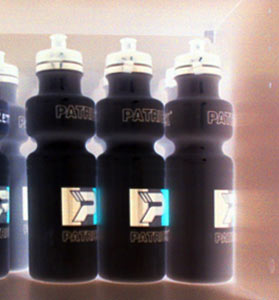Why measure hydration?
There are many factors that can impact on the hydration status of sports people, such as social activities, diet, climate and activity level. It is very important for sports people to be well hydrated. For health reasons, dehydrated athletes competing in a hot climate are at greater risk of heat injury (Sawka 1992). For performance, research has shown that being dehydrated by 2% of body weight or greater can have a significant effect on performance (Armstrong et al. 1985). Hypohydration reduces aerobic performance (Barr 1999), the performance of intermittent sprints (Maxwell et al. 1999) and performance in team games (Burke & Hawley, 1997).
Hydration Testing and Urinalysis Methods
There are many methods for determining hydration status, including monitoring body mass changes, measuring sweat, various blood markers and analysis of urine. Here are more detailed descriptions of some of these methods:
- Urine specific gravity — using a refractometer to measure the specific gravity of a urine sample.
- Urine color — determining hydration level by comparing the urine color to a chart.
- Sweat Monitoring — skin monitors to measure sweat rate and composition.
- Sweat analysis — collecting sweat using patches to measure electrolyte composition.
- Sweat loss — total sweat loss measurement using body weight changes.
- Sweat rate — measurement of site-specific sweating rate.
 References
References
- Armstrong, L.E, Costill, D.L., Fink, W.J., 1985. Influence of diuretic induced dehydration on competitive running performance. Med. Sci. Sports Exerc. 17: 456-61.
- Armstrong, L.E., Soto, J.A., Hacker, F.T., Casa, D.J., Kavouras, S.A., Maresh, C.M. (1998). "Urinary indices during dehydration, exercise, and rehydration." International Journal of Sports Nutrition 8: 345-355.
- Barr, S.I. (1999). "Effects of dehydration on exercise performance." Canadian Journal of Applied Physiology 24: 164-172.
- Burke, L.M. and Hawley, J.A. (1997). "Fluid balance in team sports." Sports Medicine 24: 38-54.
- Maxwell, N.S., Garner, F. and Nimmo, M.A. (1999). "Intermittent running: muscle metabolism in the heat and effect of hypohydration." Medicine and Science in Sports and Exercise 31: 675-683.
- Sawka, M.N. (1992) "Physiological consequences of hypohydration: exercise performance and thermoregulation" Medicine and Science in Sports and Exercise 24: 657-670.
Related Pages
- Sweat Analysis Methods
- Method for measuring urine specific gravity
- Method for measuring urine color
- Measuring body mass
- Hydration for sport: a collection of articles
- Nutritional implications for measuring hydration


 Current Events
Current Events